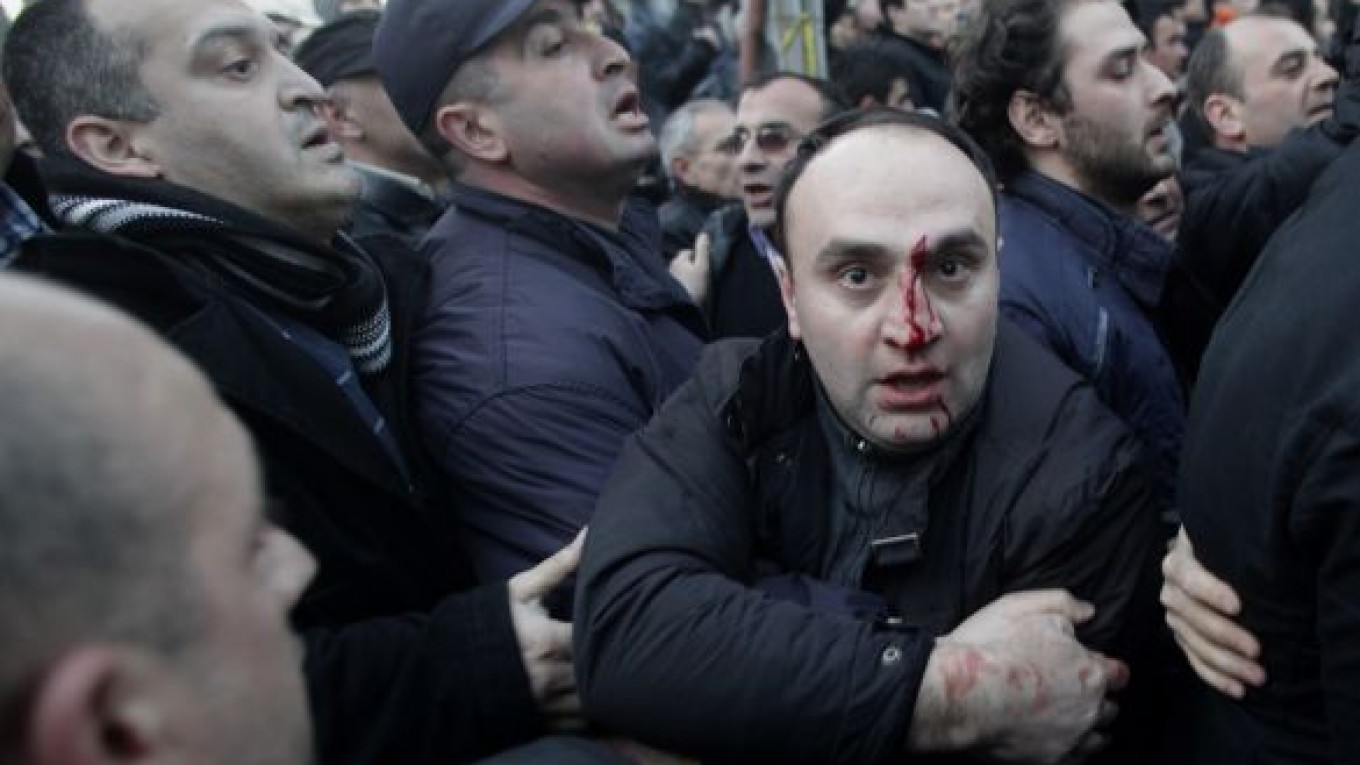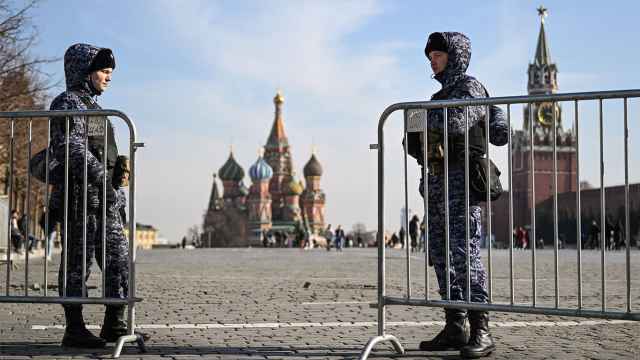TBILISI, Georgia — Hundreds of protesters who accuse Georgian President Mikheil Saakashvili of flouting human rights and stifling dissent forced him to change the venue of his annual address to the nation on Friday.
Political tensions have engulfed Georgia since Saakashvili’s party lost parliamentary elections in October to a group led by billionaire Bidzina Ivanishvili. Now prime minister, Ivanishvili is experiencing a difficult cohabitation with the president.
Scuffles broke out as protesters barred officials from Saakashvili’s party from entering the National Library, the venue for the speech that was due later in the day.
Protesters smashed windows and broke doors at the library and threw punches at Saakashvili allies, including the mayor of Tbilisi and a female lawmaker who was left with a nosebleed.
Following the protest, Saakashvili made his annual address from his office and called for his opponents to abandon the rivalry he said risks undermining democracy and unity in the country.
“Now it is time for the new majority to give more to the Georgian people and to continue to build our national home,” Saakashvili said. “It is time for the winners of the elections to build a new floor in our collective home rather than undermining its basement.”
Saakashvili is widely credited for clamping down on corruption and implementing liberal economic reforms during nine years of political dominance in Georgia, but his critics accuse him of concentrating too much power in his hands, committing human rights abuses and stifling dissent.
He was originally due to give the speech in front of the Georgian parliament, but its speaker, an Ivanishvili ally, said earlier this week that the address should be put off, prompting the president to opt for the library instead.
“Worrying that majority blocks President from delivering traditional address to Parliament of Georgia. Mutual respect is key to democracy,” Swedish Foreign Minister Carl Bildt said on Twitter.
Related articles:
A Message from The Moscow Times:
Dear readers,
We are facing unprecedented challenges. Russia's Prosecutor General's Office has designated The Moscow Times as an "undesirable" organization, criminalizing our work and putting our staff at risk of prosecution. This follows our earlier unjust labeling as a "foreign agent."
These actions are direct attempts to silence independent journalism in Russia. The authorities claim our work "discredits the decisions of the Russian leadership." We see things differently: we strive to provide accurate, unbiased reporting on Russia.
We, the journalists of The Moscow Times, refuse to be silenced. But to continue our work, we need your help.
Your support, no matter how small, makes a world of difference. If you can, please support us monthly starting from just $2. It's quick to set up, and every contribution makes a significant impact.
By supporting The Moscow Times, you're defending open, independent journalism in the face of repression. Thank you for standing with us.
Remind me later.






